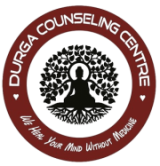Sex is a beautiful way to express love and affection for someone special. However, sexual desires can sometimes become problematic, particularly when they spiral out of control. Unchecked sexual impulses may lead to harmful consequences such as infidelity, unhealthy relationships, and significant emotional distress. This article will explore how to understand your sex drive, what compulsive sexual behavior means, and practical methods to manage overwhelming urges. We’ll also discuss when and how to seek professional help for ongoing issues related to sexuality and mental health.
Understanding Your Sex Drive
“Libido” is a term commonly used to describe the desire to engage in sexual activity. Humans—like other animals—are biologically hardwired to reproduce, and libido is a direct response to that biological imperative. However, there is no universal “normal” when it comes to libido. Some couples may choose to have sex multiple times a week; others may have intercourse less frequently.
The key to determining whether your sex drive is healthy lies in mutual satisfaction and consent within a relationship. If both partners are happy with the frequency and nature of their sexual encounters, there’s likely no issue. Problems can arise when high libido translates into compulsive thoughts or actions that negatively affect personal well-being and relationships.
Factors Affecting Libido
According to research from the National Institutes of Health (NIH), several factors can influence one’s sex drive:
- Level of fatigue
- History of sexual abuse
- Depression and anxiety
- Estrogen and testosterone levels
- Substance use (drugs and alcohol)
- Religious norms and cultural background
- Relationship quality
When these factors converge, they may lead to an excessive sexual appetite or a marked decrease in sexual desire. Checking in on your mental and emotional state can help pinpoint triggers for changes in your libido.
Compulsive Sexual Behavior
Also referred to as sex addiction or hypersexuality, compulsive sexual behavior involves an excessive focus on sexual fantasies or acts to the detriment of overall well-being. While the DSM-5 (Diagnostic and Statistical Manual of Mental Disorders) does not formally classify sex addiction as a distinct diagnosis, the World Health Organization (WHO) includes “Compulsive Sexual Behavior Disorder” in the ICD-11. This indicates recognition of such behavior as potentially disruptive and harmful.
Characteristics of Sex Addiction
- Inability to feel sexually satisfied: A person may have frequent sexual encounters or masturbation sessions without finding relief.
- Difficulty stopping or controlling sexual activities: Even when relationships, careers, or reputations are at stake, the urge remains uncontrollable.
- Sacrificing time and responsibilities: Work, sleep, or family obligations may be neglected in favor of pursuing sexual gratification.
- Using sex as an escape: Some individuals use sexual behavior to cope with stress, trauma, or emotional pain.
Compulsive sexual behavior can lead to self-destructive patterns, such as financial strain, loss of meaningful relationships, and negative mental health outcomes. Early intervention and professional guidance can help individuals break this cycle.
How to Control Sexual Desire: 5 Practical Strategies
A high sex drive only becomes a problem when it starts interfering with your daily responsibilities, relationships, and well-being. Below are proven tips to help manage overwhelming sexual urges.
1. Identify the Triggers
- Self-Assessment: Recognize the times and environments in which sexual thoughts typically arise.
- Pattern-Breaking: Once you notice a pattern, take steps to disrupt it. For example, if you find yourself fantasizing at certain times of the day, schedule an alternative activity—like a walk or a quick mindfulness exercise—during those intervals.
- New Hobbies: Focusing on a creative or physical hobby can redirect your energy and lessen your reliance on sexual thoughts for stimulation.
2. Know Your First Line of Defense
- Immediate Disruption: The moment you sense arousal in an inappropriate setting (e.g., work), pause and mentally tell yourself to stop.
- Distance Yourself: If a particular person or scenario sparks sexual fantasies, limit contact or refocus your attention.
- List Your Motivations: Keep a list—mentally or on paper—of reasons why you want to control your impulses. Revisit these when temptation strikes.
3. Avoid Pornography
- Accessibility Issues: Pornography is widespread, making it easier to feed compulsive sexual behavior.
- Use Filters: Enable web filters on your devices to block adult content.
- Accountability Partners: If possible, find a trusted friend or counselor to help you stay accountable for your online habits.
4. Abstain from Drugs and Alcohol
- Risk Amplification: Substance use can lower inhibitions, leading to impulsive sexual decisions.
- Co-Occurring Disorders: Individuals with sex addiction may also struggle with substance abuse. Together, these issues can lead to legal and personal consequences.
- Set Boundaries: Avoid places and social gatherings where you’re likely to encounter triggers (e.g., excessive drinking, drug use).
5. Talk to Others Who Can Help
- Therapy & Counseling: Seek a licensed psychosexual or relationship therapist for specialized strategies.
- Open Communication: If you’re in a relationship, discuss your concerns with your partner to work on mutual understanding and supportive measures.
- Support Groups: Groups like Sex Addicts Anonymous (SAA) offer peer support for individuals struggling to manage high libido or compulsive behaviors.




